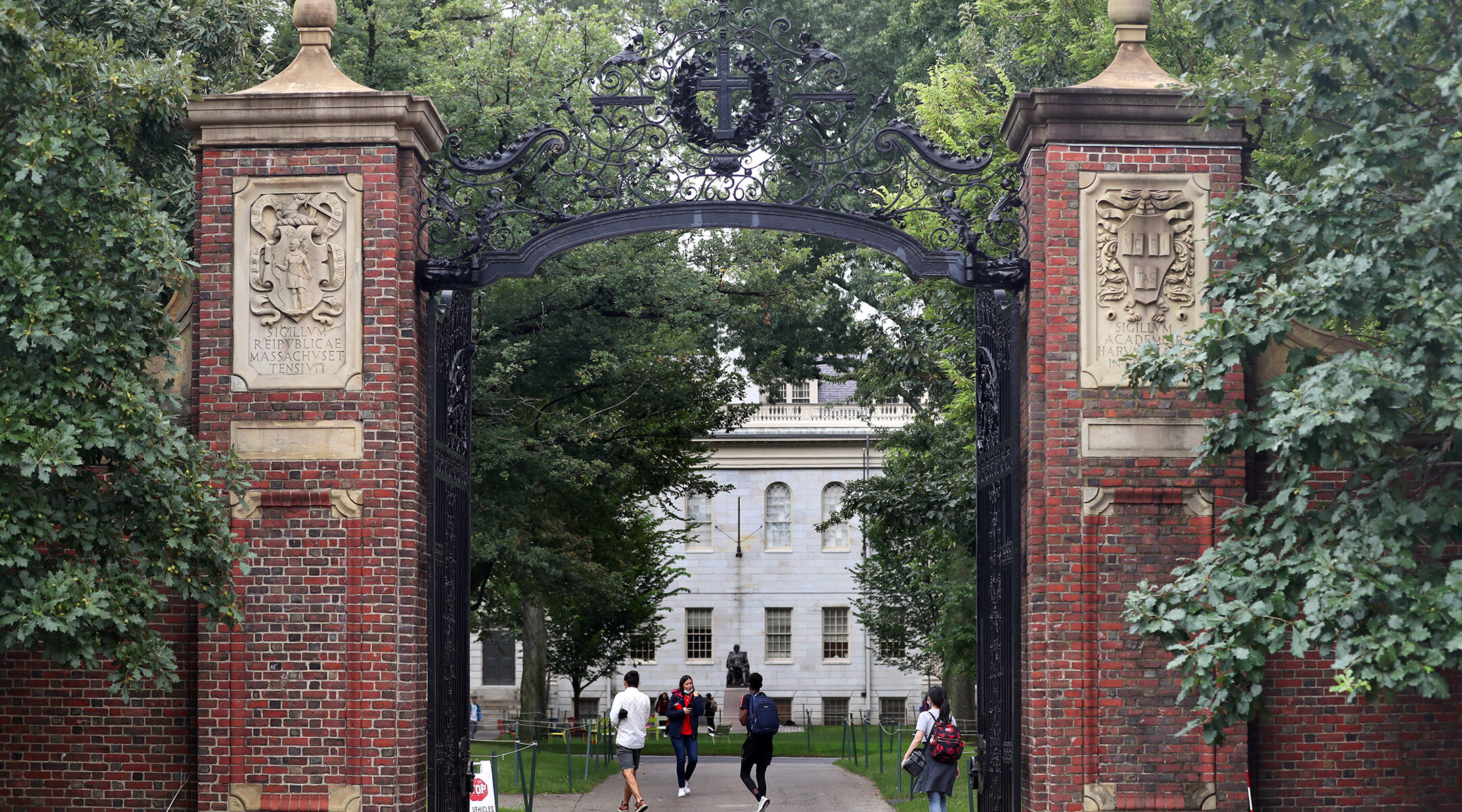(JTA) — A congressional committee is subpoenaing Harvard University leaders to demand documents related to the university’s handling of antisemitism.
The subpoenas, announced Friday, signal that the House investigation remains focused on discrimination against Jews and Israelis at Harvard. It comes more than a month after Harvard President Claudine Gay resigned following congressional testimony in which she declined to say whether the school prohibits calling for the genocide of Jews.
The subpoenas from the Republican-led Committee on Education and the Workforce demand reports of antisemitic acts filed to the university administration and police, as well as internal communication about the incidents, dating back to January 2021. The committee demanded documents related to disciplinary measures for students and staff who targeted “Jews, Israelis, Israel, Zionists or Zionism.”
The lawmakers also demanded the minutes of Harvard administration meetings, materials related to Harvard’s Antisemitism Advisory Group and Task Force on Antisemitism, and materials related to protests and controversies on campus since Hamas’ Oct. 7 attack on Israel. The subpoenas demand the documents by March 4.
“The evidence suggests that the school is obstructing this investigation and is willing to tolerate the proliferation of antisemitism on its campus,” the subpoenas said. “The committee must now compel production of all responsive documents.”
The subpoenas were issued to Harvard’s interim president, Alan Garber; Penny Pritzker, the leader of the Harvard Corporation, the university’s governing board; and N.P. Narvekar, the CEO of the Harvard Management Company, which handles its approximately $50 billion endowment.
The subpoenas demanded that Garber and the other university officials appear before the committee to produce the documents on March 4.
The congressional committee also expanded its investigation last week to Columbia University by sending letters to its president, Dr. Minouche Shafik, and other university officials. The letters outlined recent anti-Israel and antisemitic incidents and requested information and documents related to Columbia’s response.
Shafik was invited to testify before Congress at the December hearing, but declined to appear, citing a previously scheduled engagement overseas.
The committee held the December hearing in which Gay, along with the presidents of the University of Pennsylvania and the Massachusetts Institute of Technology, to testify. The presidents of the other two schools also did not say outright that calls for the genocide of Jews were prohibited under campus conduct rules, and Penn’s president resigned in its wake as well.
The committee is still investigating all three universities, but Harvard is the first to receive subpoenas. The committee’s chairwoman, Rep. Virginia Foxx of Virginia, said the subpoenas were necessary because Harvard had failed to produce documents requested by the committee.
Foxx claimed the university had produced more than 2,500 pages of documents, but that at least 40% were already publicly available. She said Harvard had received a warning last week, and had failed to respond adequately to the committee’s last four requests for documents.
“Harvard’s continued failure to satisfy the committee’s requests is unacceptable,” Foxx said in a statement. “I will not tolerate delay and defiance of our investigation while Harvard’s Jewish students continue to endure the firestorm of antisemitism that has engulfed its campus.” Harvard did not immediately respond to a request for comment on the subpoenas.
Harvard officials including Gay have said that the university allows hardline anti-Israel rhetoric, which critics say veers into antisemitism and harassment, in the name of free speech. This week, the Foundation for Individual Rights and Expression (FIRE), a free speech advocacy group, said in a report that Harvard was “America’s worst college for free speech,” saying it had a “long track record of censorship.”
The report cites a defamation lawsuit brought against the New York Post for a story alleging Gay plagiarized some of her scholarship; a survey that found that 30% of students believe violence is sometimes acceptable to block campus speech; backlash against faculty and speakers for their views on gender, and the temporary rescinding of a fellowship for the former head of Human Rights Watch due to his anti-Israel views
JTA has documented Jewish history in real-time for over a century. Keep our journalism strong by joining us in supporting independent, award-winning reporting.






